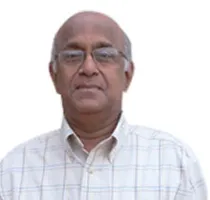The passing of the security legislation on September 19 following a great deal of commotion in the Japanese Upper House fulfilled at least partly PM Abe's long-drawn quest towards making Japan a normal country. He has always believed that Article 9 of the US authored Japanese constitution which put severe restrictions on Japan's right to collective self-defence and its drive towards reasonable armament should be amended. But as he started his administration following his thumping victory in the Lower House election in December 2012, he soon realised that the path leading to a formal constitutional amendment was fraught with too many political risks. To be sure, Abe was able to significantly improve his political strength in two subsequent elections - the July 2013 Upper House election and the December 2014 Lower House election. Though the LDP-Komeito coalition government has impressive majority strengths in both houses today, it is still falling short of the requisite 2/3 majority in the Upper House needed for passing a constitutional amendment.
Having failed to garner the requisite parliamentary strength, Abe at one time toyed with the idea of lowering the legal bar for constitutional amendment by a simple majority in place of the present complicated method of two thirds majority in both Houses followed by a national referendum on the issue. But seeing a groundswell of public criticism, he quickly dropped the idea and decided instead to reinterpret Article 9 to permit Japan to exercise the right to collective self-defence.
The question relating to Japan's right to collective self-defence has a long history traceable to 1947 when the US sponsored constitution was promulgated. According to Article 9 of the Constitution, Japan has renounced the use of force as an instrument to settle disputes and in pursuance of this goal, will not maintain air, sea and land forces. In 1981, the Japanese government clarified that while Japan enjoys the right to collective self-defence, it cannot exercise it as it would violate the Constitution. Successive Japanese governments stood by this interpretation despite tremendous pressures they faced from the US which criticised Article 9 as an obstacle to Japan in carrying out its obligations under the bilateral security alliance.
By the time Abe came to power for the second time in 2012, public debate on the issue of the right of collective self-defence assumed greater salience as a result of the increasing activities of the SDF and the worsening security environment of the East Asian region due to North Korea's nuclear and missile development and the modernisation of China's maritime and air capabilities. A staunch supporter of the US-Japan alliance, Abe believes that the continued presence of the US in the Asia-Pacific region is essential for maintaining the prevailing strategic balance. He set up a special commission under Shunji Yanai to go into the question of Japan's right to collective self-defence (CSD). The commission came out with the recommendation that unless the ban on collective self-defence was removed Japan's security would continue to fa
The views expressed above belong to the author(s). ORF research and analyses now available on Telegram! Click here to access our curated content — blogs, longforms and interviews.

